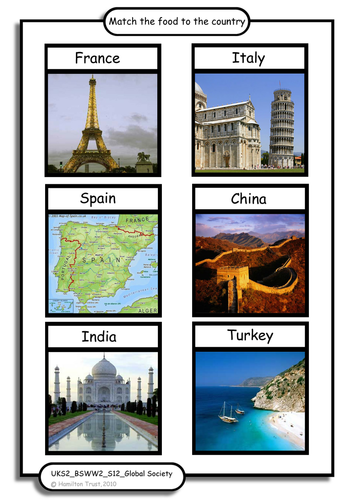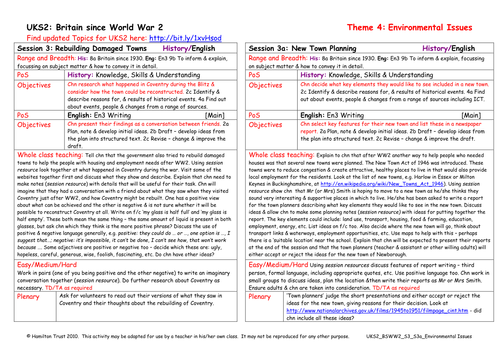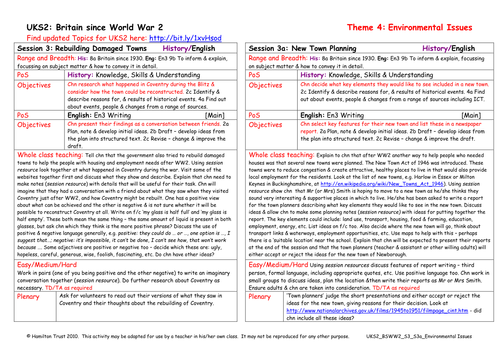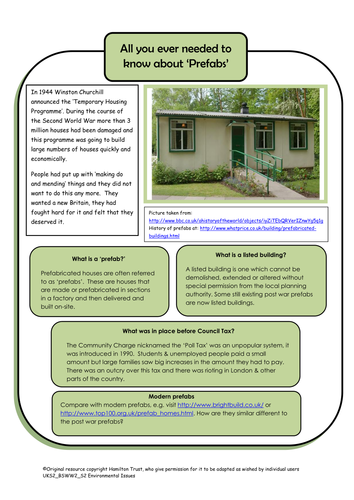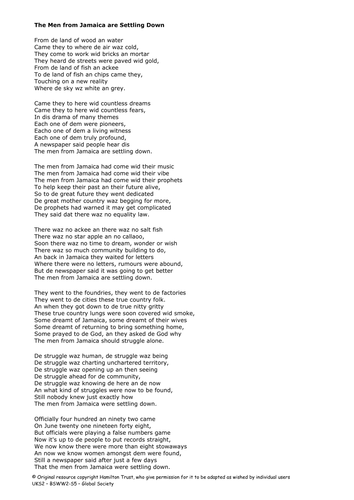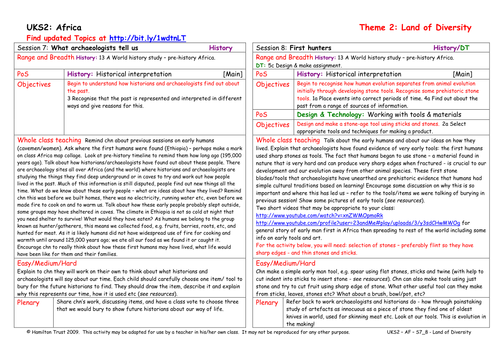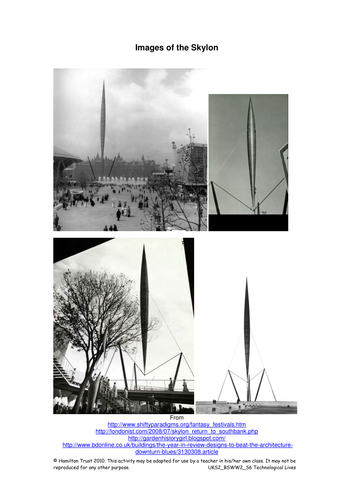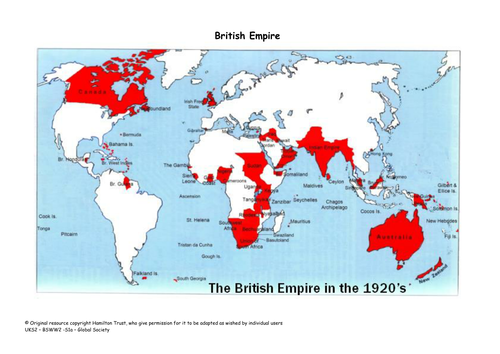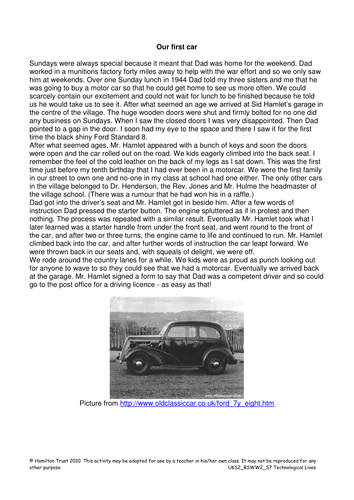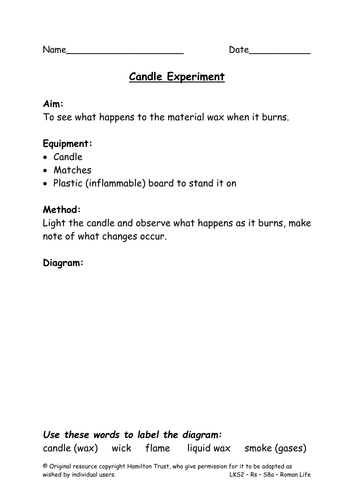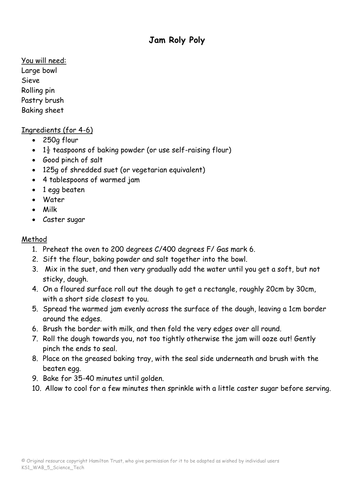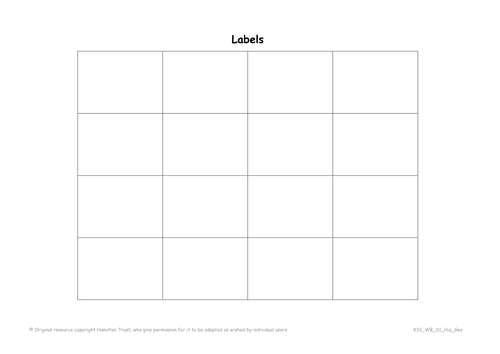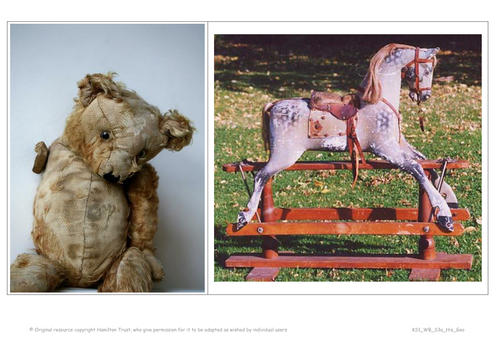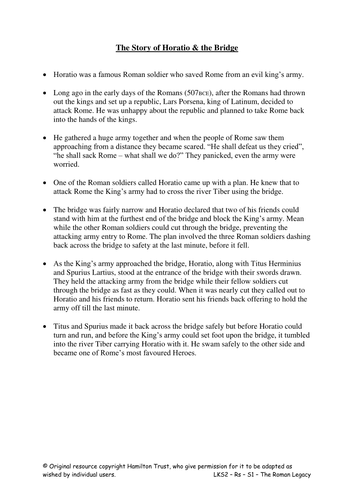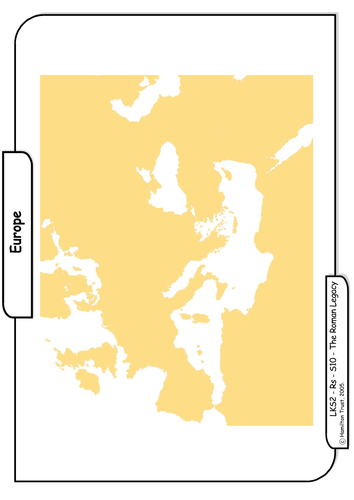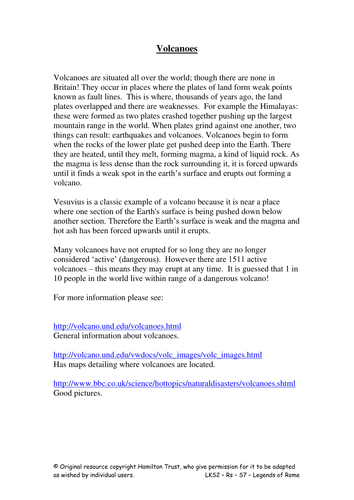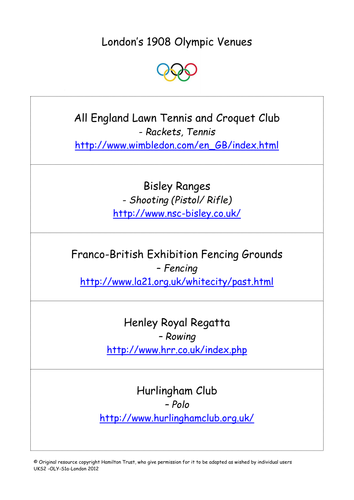
3k+Uploads
10009k+Views
11617k+Downloads
History

Merging Cultures
Celebrate the diversity of British people! The cultures of immigrants from many countries who have come to Britain since WW2 have been merged with the pre-war British culture to provide a great variety of foods, music, clothes and dance. Explore and enjoy!

New Town Planning
Find out about the New Towns that were planned to help with housing shortages. Look at some examples. Children identify the key elements that they would like included in a new town, and then write a report for a new town planning committee.

Rebuilding Damaged Towns
After WW2 many towns that were badly damaged in the bombing needed to be re-built. Children research what happened in Coventry and consider what could be done to help re-build and re-construct the area. Present their findings as a conversation between friends.

Prefabs
Children understand that millions of houses were destroyed during WW2 and they needed to be replaced. Houses were designed that were pre-fabricated. They were quick to build; thousands were put up in the 1940s/1950s. Children choose key info needed to sell a prefab.

Notting Hill Carnival
Read Benjamin Zephaniah’s poem The Men from Jamaica are Settling Down. Discuss the treatment that migrants from the Caribbean received from some British people. Explain how this lead to riots and the first Notting Hill Carnival. Children design carnival costume.

Washing Machines and Spin Driers
Children look at labour saving household inventions, order picture of machines across the decades and then carry out an experiment to find out how spin driers work.

First Hunters
In this session children look at how prehistoric man created his/her tools. As hunter-gatherers they had need of sharp knives and axes and spears. Children have fun making their own prehistoric tools using sticks, twine and stones.
Suitable for years 5 and 6.
Find other lesson plans and resources at www.hamilton-trust.org.uk.

Festival Of Britain Architecture
Children look at Festival of Britain architecture especially the Skylon and Dome of Discovery. They choose to make a Skylon, Dome or to design their own futuristic piece of architecture.

Who Are The British People?
Discuss the diff peoples who came to Britain in the past and made it their home - Celts, Romans, Saxons, Vikings and Normans and how other peoples have continued to come since WW2. Start a class timeline and individual timelines using ICT about this.

History of Cars
Children listen to a memoir of an elderly person's first car and then look at modern day car brochures looking for features which are new, and write a list of features they would like to see in future cars.

Sporting South Africa: The Past
On 18th August 1964 South Africa’s invitation to the Olympic Games was withdrawn. What followed was nearly thirty years in the sporting wilderness. In this session children study key dates and events which are added to a timeline.

Candle Experiment: Solid to Liquid to Gas
Children continue exploring materials and look at an example of an irreversible change, burning. The Romans burned candles for light.
Children watch a candle being lit and burned and observe the changes, using scientific terms, e.g. gas, in their explanations.
Suitable for years 3 and 4.
Find other lesson plans and resources at www.hamilton-trust.org.uk.

Cooking A 1950's Meal
Children have the opportunity to cook one course of a typical 1950s meal or to set the table. Discuss safety measures before children cook the shepherds’ pie, rice pudding or sponge pudding and custard. Will everyone have a taste of all three dishes?

Make a Map
Children learn all about Britain and the different countries that make it complete. They write simple labels and create their own personal map of Britain, positioning favourite places and familiar landmarks.
Suitable for Years 1 and 2.

How old is my toy?
How do we know that a toy is old? What happens to our toys when they get played with lots? Children explore different toys and look for the signs of age. They choose precise words and explain their reasoning in detail.
Suitable for Years 1 and 2.

Horatio and The Bridge
Children are introduced to the story of Horatio, the hero of the bridge standing with the Romans against the Etruscans. They then re-tell the story in dramatic form, enacting it and taking different parts. They recap on all the stories of ancient Rome.
Suitable for years 3 and 4.
Find other lesson plans and resources at www.hamilton-trust.org.uk.

Italy Today
We now turn our attention to Modern Italy, looking at the period since unification in 1870, and thinking about the city of Rome and the country of Italy in today’s world. Children locate Italy and countries surrounding it on a map of modern-day Europe.
Suitable for years 3 and 4.
Find other lesson plans and resources at www.hamilton-trust.org.uk.

Volcanoes
Children explore the subject of volcanoes, drawing on session 6 work about Vesuvius. They are provided with a physical explanation, and then locate volcanoes around the world. They look at exactly what happens when a volcano which has been dormant, erupts.
Suitable for years 3 and 4.
Find other lesson plans and resources at www.hamilton-trust.org.uk.

London's Olympic Legacy
The Olympics is now the largest sporting event on Earth, but that was not always the case. Children compare today with its early London incarnations and investigate what happened to the facilities after the torch was extinguished!

London Olympics 1908 and 1948
2012 brings with it London’s third Summer Olympic Games! In this session children find out more about the games in 1908 and those in 1948. Through research of the past they discover what made them unique in so many ways.

